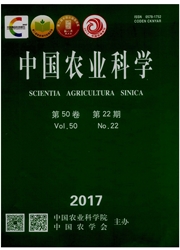

 中文摘要:
中文摘要:
自从小鼠的胚胎成纤维细胞和鼠尾成纤维细胞重编程成为诱导多能干细胞(induced pluripotent stemcells,iPSCs)以来,iPS的研究成了干细胞研究领域的热点。与胚胎干细胞相比,iPS细胞有操作简便和高稳定性等优点可以应用于,如创建人类疾病的遗传模型,培育转基因动物用于器官移植,改善动物生产性状和抗病性,以及生物制药等领域。另外,iPSCs的产生对于解决长期以来干细胞研究领域的伦理问题和免疫排斥问题有巨大的意义,iPS结合基因治疗和细胞移植疗法的成果已经应用到了动物疾病模型上。iPS细胞技术给病人特定细胞治疗和基因针对性药品研制带来了巨大的前景。此外,该技术也提供了iPS细胞重编程机制和人类疾病的病理过程研究的新平台。然而,现阶段多能干细胞的研究只是开辟了一个新的领域,iPS技术要应用于临床还有很多工作要做。本文主要针对iPSCs的研究现状与应用前景进行讨论。
 英文摘要:
英文摘要:
The study of induced pluripotent stem cells(iPS cells/iPSCs) has become hot spot of stem cell research since the mouse embryonic fibroblast and tail tip fibroblast were successfully reprogrammed to iPSCs.Compared with embryonic stem cells,iPS cells have many advantages,such as simple operation and high stability.The iPSCs has potential values in both the fundamental study of biology and clinical application.iPS cells' application would be very useful in various fields,for example,creating genetic models for human diseases,obtaining transgenic animals for organ transplantation therapies,improving animal production traits and disease resistance,as well as for bio-pharmaceuticals and so on.In addition,the application of iPSCs would have a great significance for solving the long-standing problems of stem cell research ethical issues and immune rejection.With the combination of gene therapy and cell transplantation therapies,the iPSCs research findings have been applied to animal disease models and transgenic animals.And iPS cells technology elicits a great promise for patient-specific cell therapy and development of gene targeted drugs.Furthermore,the technology also provides a novel platform for the research of iPS cells reprogramming mechanism and pathological process of human disease.However,at the present stage iPSCs' research is just beginning and there is still much work to do before iPSCs can be considered as a clinically reliable cell source.The research progress,current situation and future application prospects of iPSCs technology were discussed in the paper.
 同期刊论文项目
同期刊论文项目
 同项目期刊论文
同项目期刊论文
 期刊信息
期刊信息
